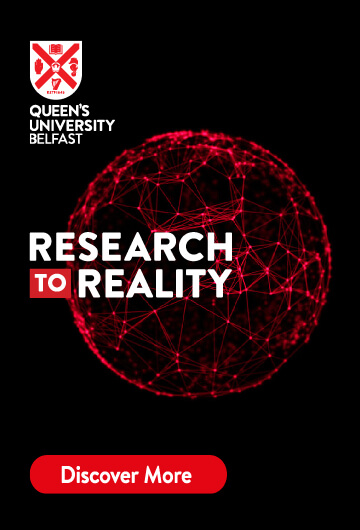USING IONIC LIQUIDS TO RECYCLE PLASTIC WASTE
Working with key partners across the island of Ireland, researchers at QUILL (Queen's University Ionic Liquid Laboratories) are discovering how ionic liquids can provide a sustainable way of recycling plastic waste.
Plastic waste is an increasing problem for our planet.
Pyrolysis has tried to address this challenge. It tackles plastic waste by subjecting it to high temperatures, causing it to fall apart into small fragments. However, current pyrolysis technology converts this waste into fossil fuels, which is not environmentally sustainable.
Emerging pyrolysis technology has taken a step forward by converting waste plastics into waxes which have many industrial uses, but the industrial capacity to conduct this process is only available in certain regions. For example, the island of Ireland does not have the large oil refineries required for this process, so the waste plastic would need to be transported large distances which adds to the carbon footprint.
Queen’s researchers are working to address these challenges by discovering how ionic liquid technology can convert waste plastics to useful products in a way that is sustainable, supports a circular economy, and makes plastic waste recycling processes more economically viable.
QUILL brings research chemists, chemical engineers, and environmental scientists together and has built a global reputation in the development of ionic liquid technology.
We are using our previous knowledge and pre-competitive research in ionic liquids to develop catalysts that break down plastics – particularly PET – into monomers in ways that are more environmentally friendly, use less energy, and save costs in recycling processes.
Researchers have demonstrated how ionic liquid technology can convert plastic waste into useful products in a way that is sustainable and economically viable. This can be used to make a huge difference in how we recycle plastic waste and support a circular economy.
We’re committed to making a meaningful impact on the world. A community of innovators, disruptors, and change-makers, we’re working with industry to broaden our translational impact to help tackle the global challenges of our age. Read more about how our research shapes worlds.
Learn more about Queen’s University’s commitment to nurturing a culture of sustainability and achieving the Sustainable Development Goals (SDGs) through research and education. Read more here.














